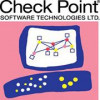182 Cradlepoint Jobs

Cloud Developer
Cradlepoint
posted 4d ago
Job Role Insights
Flexible timing
Key skills for the job
Job Description
Software Development Lifecycle: Understanding of the software development process from planning and design to implementation, testing, and maintenance.
Version Control Systems: Proficiency in using version control systems like Git for managing codebase changes and collaboration with other developers.
Testing and Debugging: Familiarity with testing techniques and tools for ensuring code quality, including unit testing, integration testing, and debugging.
Software Architecture and Design Patterns: Understanding of software architecture principles and common design patterns to create scalable, maintainable,
and reusable code.
Communication and Collaboration: Ability to effectively communicate with team members, stakeholders, and clients, as well as collaborate in a team
environment.
Continuous Learning: Software development is a rapidly evolving field, so a willingness to continuously learn new technologies, tools, and best practices
is essential for staying relevant.
Version Control Systems: Proficiency in using version control systems like Git for managing codebase changes and collaboration with other developers.
Testing and Debugging: Familiarity with testing techniques and tools for ensuring code quality, including unit testing, integration testing, and debugging.
Software Architecture and Design Patterns: Understanding of software architecture principles and common design patterns to create scalable, maintainable,
and reusable code.
Communication and Collaboration: Ability to effectively communicate with team members, stakeholders, and clients, as well as collaborate in a team
environment.
Continuous Learning: Software development is a rapidly evolving field, so a willingness to continuously learn new technologies, tools, and best practices
is essential for staying relevant.
The skills you bring:
Mandatory skills - docker, kubernetes, helm, Java basic
Good to have skills - golang, python
Problem-Solving Skills: Ability to analyse problems and develop logical solutions efficiently. This includes understanding requirements, breaking down
complex issues, and devising effective strategies to solve them.
complex issues, and devising effective strategies to solve them.
Employment Type: Full Time, Permanent
Read full job descriptionPrepare for Cloud Developer roles with real interview advice
What people at Cradlepoint are saying
What Cradlepoint employees are saying about work life
based on 13 employees
Flexible timing
Monday to Friday
No travel
Similar Jobs for you
Share an Interview

































